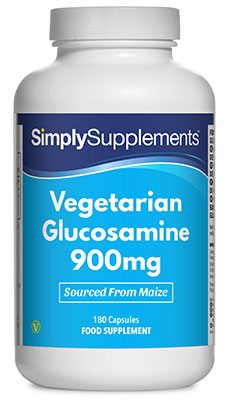Skincare During Pregnancy

Acne, dry itchy skin and unusual hair growth are common changes women experience during pregnancy.
During this period, the levels of certain hormones fluctuate, which can affect the appearance of skin. Many of these changes are nothing to worry about and often return to normal after birth when the hormone levels re-balance. A combination of a healthy diet and nutritional supplements can help to establish good skin care during pregnancy.
Many of us are already aware of the benefits of folic acid supplements during this period. However, there are other nutrients and supplements that can help to support pregnancy and skin.
Skin Changes During Pregnancy
Many women are described as having a healthy ‘glow' during pregnancy. This 'glow' is caused by increased blood circulation and water retention. Unfortunately, this is not the only skin change that women can experience. Other common changes include:
- Dry Skin: For some women, hormonal changes can reduce the amount of oil the skin produces. This can lead to patchy areas of dry itchy skin, especially on the face. It is important to keep the body well moisturised. Try to avoid washing your skin too often and use lukewarm water instead of hot.
- Chloasma: This is the appearance of brownish or yellowish patches on the face. Chloasma is caused by fluctuations in the hormones progesterone and oestrogen and can be made worse by exposure to sunlight. It is important to wear sunscreen to reduce the appearance of chloasma. Any changes should return to normal after pregnancy.
- Acne: If you are usually prone to oily skin then you may find that you suffer from acne outbreaks throughout pregnancy. This is due to the presence of hormones called androgens that can cause the body to produce higher levels of sebum. Select an oil-free moisturiser and ensure you remove all makeup before bed.
- Stretch Marks: These pink/purple streaks are extremely common during pregnancy, especially during the final trimester. They occur when the underlying layers of skin are stretched rapidly. To reduce the severity of stretch marks keep the skin well moisturised throughout the pregnancy.
- New Hair Growth: It is normal to experience unusual hair growth on the face, arms and legs during pregnancy. Hair growth usually returns to normal within six months of birth.
There are steps you can take to reduce these changes - use sunscreen daily with a minimum SPF15, limit washing your face to twice a day to prevent skin from drying out, and use gentle unscented cleansers and moisturisers.
What to Avoid During Pregnancy
During pregnancy, you need to consider what you eat, apply to the skin, or come into contact with to protect the well-being of your unborn baby.The following ingredients and products may be harmful, and so should be avoided during this period.
- Liver: Liver contains vitamin A, certain forms of which can be harmful to unborn babies. Cod liver oil should be avoided during pregnancy due to its vitamin A content.
- Dairy: Use caution when consuming dairy products. Don't eat mould-ripened or blue-veined cheeses as these can contain the listeria bacteria that can lead to miscarriage. Also, avoid raw eggs and unpasteurised milk.
- Alcohol: Avoid alcohol during pregnancy as it can seriously affect the development of the baby.
- Caffeine: Limit caffeine to two cups of coffee or tea per day. High caffeine consumption during pregnancy has been linked to decreased birth weights.
- Prescription Medications: Certain prescription medications that are commonly taken to treat acne contain chemicals that are considered harmful.
- Retinoids: These are a key ingredient in many anti-ageing creams and treatments. They are a type of vitamin A that help to speed up the process of skin renewal. There is insufficient evidence to show that they are safe during pregnancy.
- Essential Oils: You should avoid using essential oils during the first 12 weeks of pregnancy. In the second and third trimester they are generally considered safe.
Safe Supplements for Skin Care During Pregnancy
The following nutrients have been shown to promote good skin care during pregnancy and are considered safe to take. However, we would always advise that you consult with your doctor before taking any supplements.
- Vitamin C: Vitamin C plays an important role in the maintenance of collagen in the skin and is essential for tissue repair, wound healing, and healthy skin.
- Zinc: This essential mineral is vital for growth and cell division. During pregnancy the cells of the growing foetus divide rapidly. Zinc promotes healthy development and accelerates the renewal of skin cells.
- Omega 3's: Essential fatty acids, in particular, EPA, are important for the hydration of skin cells. They may also help to regulate the production of oil in the skin. Omega 3 fish oils contain beneficial levels of EPA and can also support the healthy brain and visual development of the baby.
- Probiotics: The appearance of the skin is often linked to what is going on inside our gut. It is believed that ‘friendly' bacteria can be passed through the placenta and breast milk. Some preliminary studies show that taking probiotics during pregnancy and lactation may help to ward off eczema in childhood.
Shop high-quality Pregnancy Supplements

 Nicole
Nicole 

























